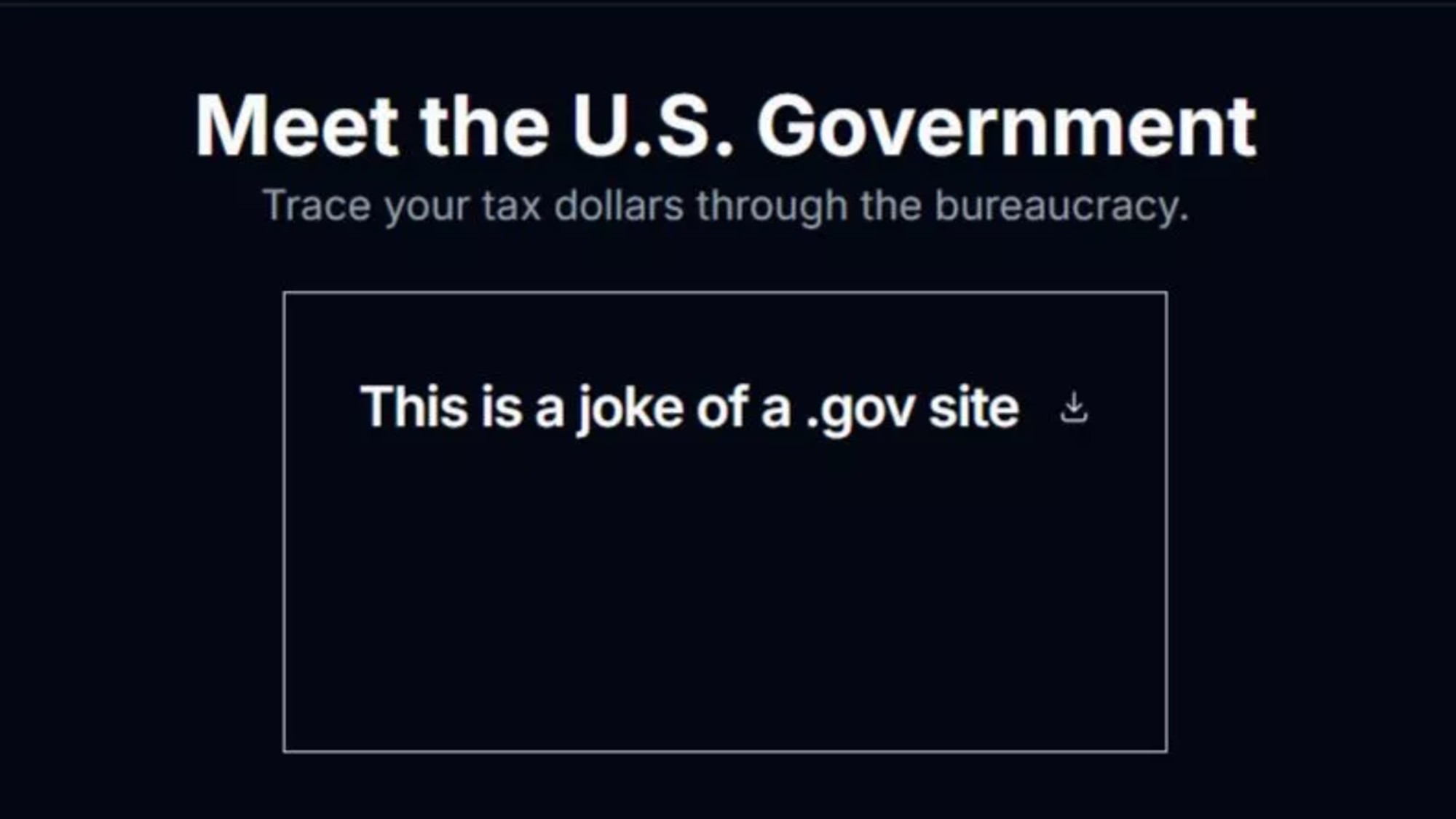Emma Watson nude photo leak was an 'elaborate hoax'
Picture threat is followed by another 'hoax within a hoax' orchestrated by serial internet spammers

A free daily email with the biggest news stories of the day – and the best features from TheWeek.com
You are now subscribed
Your newsletter sign-up was successful
The threat to publish stolen nude photos of actress Emma Watson has been revealed as a hoax - which appears to be part of a labyrinthine plot devised by a shadowy online marketing company, purely designed to generate page views on the internet.
The saga began when a group of unidentified hackers yesterday threatened to publish stolen nude photos of the Harry Potter star in response to her speech on feminism at the UN, and set up a website to that end.
But the EmmaYouAreNext website, which had a timer counting down until the images were going to be released, now re-directs to another site run by an organisation called Rantic, which claims to be a marketing company hired to stop the controversial image-sharing website, 4chan, from spreading stolen photographs.
The Week
Escape your echo chamber. Get the facts behind the news, plus analysis from multiple perspectives.

Sign up for The Week's Free Newsletters
From our morning news briefing to a weekly Good News Newsletter, get the best of The Week delivered directly to your inbox.
From our morning news briefing to a weekly Good News Newsletter, get the best of The Week delivered directly to your inbox.
The Rantic site calls on people to "join us as we shutdown 4Chan and prevent more private pictures from being leaked."
The site also contains a message to US President Barack Obama which states: "We have been hired by celebrity publicists to bring this disgusting issue to attention. The recent 4chan celebrity nude leaks in the past 2 months have been an invasion of privacy and is also clear indication that the internet NEEDS to be censored."
If that wasn’t confusing enough, the plot thickens further, for the company Rantic appears not to exist. Commentators are now calling its campaign a "hoax within a hoax".
According to Business Insider's James Cook, Rantic is a "fake company run by a gang of prolific internet spammers used to quickly capitalise on internet trends for page views."
A free daily email with the biggest news stories of the day – and the best features from TheWeek.com
The group is collectively known as SocialVEVO and has been behind some of the most prolific online hoaxes, Cook says.
Fernando Alfonso describes its "business model" for the website Daily Dot: "SocialVEVO would create fake campaigns. For maximum impact, they’d pick targets that were grabbing headlines. By the time the internet caught on to its hoaxes and the targeted companies took action, SocialVEVO would already have its views — and its money."
But it's not all bad news, as The Verge's Rich McCormick points out. "The threat of another young woman's private photos being leaked has spurred a strong reaction from the media," he writes, arguing that the hoax has inadvertently provided "a point of coalescence around which people could discuss the representation of women in society."
Emma Watson threatened with nude photo leak after UN speech
23 September
Internet trolls have threatened to publish stolen nude photos of actress Emma Watson, just days after she addressed the UN on gender equality.
A website entitled Emma You Are Next counts down the seconds until the pictures are released and appears to have been set up in response to Watson's speech. The campaign against Watson also includes a fake news website reporting that the actress was found dead in a hotel room.
Over the past few weeks, more than 100 female celebrities have been targeted by hackers who posted their stolen pictures on the image-sharing site 4chan.
One of the comments reads: "She makes stupid feminist speeches at UN, and now her nudes will be online, HAHAHAHAHAHAHAH". Others threaten her with extreme sexual violence for speaking out against sexism.
The recently appointed UN Women Goodwill Ambassador delivered a speech on feminism and launched her HeForShe campaign on Saturday, calling on men to speak out against gender inequality. It earned her a standing ovation and the video has since gone viral.
In her speech she cites examples of sexism and misogyny she has experienced. "I started questioning gender-based assumptions [...] when at 14 I started being sexualised by certain elements of the press".
She also addressed misconceptions about the feminist label. "Apparently I am among the ranks of women whose expressions are seen as too strong, too aggressive, isolating, anti-men and unattractive", she says. "Why is the word such an uncomfortable one?"
Robyn Pennacchia, writing for music and culture website Death and Taxes, says that the goal of 4chan trolls is to "make it as uncomfortable to speak out about misogyny and women's issues as possible, the goal is to make it a scary thing to do, which is why they go to the wall in terms of harassing women like Emma Watson".
Watson has yet to comment on the threats, but she previously came to the defence of Hunger Games actress Jennifer Lawrence, a victim of the theft by tweeting: "Even worse than seeing women's privacy violated on social media is reading the accompanying comments that show such a lack of empathy."
The Guardian's Harriet Minter argues that the trolls have in fact propelled Watson's message to a wider audience. "Those people who had tried to silence her had just helped her, and every other woman who's ever spoken out against injustice, to shout a little louder," she said.
-
 The environmental cost of GLP-1s
The environmental cost of GLP-1sThe explainer Producing the drugs is a dirty process
-
 Greenland’s capital becomes ground zero for the country’s diplomatic straits
Greenland’s capital becomes ground zero for the country’s diplomatic straitsIN THE SPOTLIGHT A flurry of new consular activity in Nuuk shows how important Greenland has become to Europeans’ anxiety about American imperialism
-
 ‘This is something that happens all too often’
‘This is something that happens all too often’Instant Opinion Opinion, comment and editorials of the day
-
 Why Britain is struggling to stop the ransomware cyberattacks
Why Britain is struggling to stop the ransomware cyberattacksThe Explainer New business models have greatly lowered barriers to entry for criminal hackers
-
 Who are the new-wave hackers bringing the world to a halt?
Who are the new-wave hackers bringing the world to a halt?The Explainer Individual groups and nations are beginning to form concerning partnerships with new ways to commit cybercrime
-
 Jaguar Land Rover’s cyber bailout
Jaguar Land Rover’s cyber bailoutTalking Point Should the government do more to protect business from the ‘cyber shockwave’?
-
 Airplane crash-detection systems could be vulnerable to hackers
Airplane crash-detection systems could be vulnerable to hackersUnder the Radar 'The idea scares the shit out of me,' one pilot said
-
 Elon Musk's DOGE website has gotten off to a bad start
Elon Musk's DOGE website has gotten off to a bad startIn the Spotlight The site was reportedly able to be edited by anyone when it first came online
-
 The Internet Archive is under attack
The Internet Archive is under attackUnder the Radar The non-profit behind open access digital library was hit with both a data breach and a stream of DDoS attacks in one week
-
 How cybercriminals are hacking into the heart of the US economy
How cybercriminals are hacking into the heart of the US economySpeed Read Ransomware attacks have become a global epidemic, with more than $18.6bn paid in ransoms in 2020
-
 Inside the dark web: could it be shut down?
Inside the dark web: could it be shut down?The Explainer The 'shrouded alleyway of the internet' is a haven for activists as well as for illicit activity